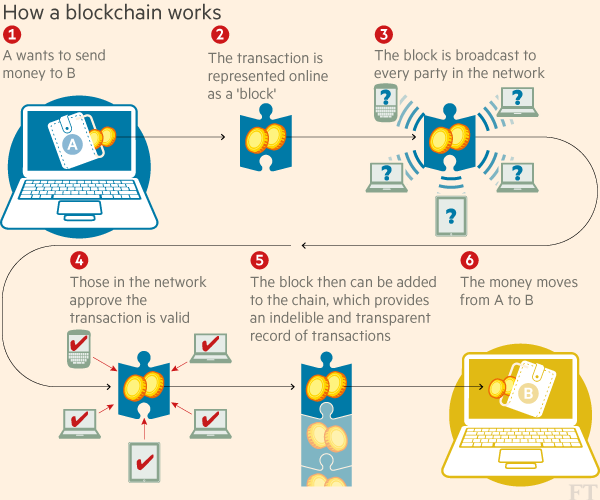Bgroho Insights
Your daily source for news, tips, and inspiration.
Blockchain: The Digital Ledger That Changed Everything
Discover how blockchain revolutionized industries, transformed trust, and created new opportunities in the digital age—unlock the future now!
How Does Blockchain Work: A Comprehensive Guide
Blockchain operates as a decentralized digital ledger that securely records transactions across multiple computers. This technology is characterized by its unique structure, where data is grouped into blocks, which are in turn linked to form a continuous chain. Each block contains a timestamp, a reference to the previous block, and transaction data. This ensures that once a block is added, it cannot be altered without making changes to all subsequent blocks, which is nearly impossible due to cryptographic security. The decentralized nature of blockchain means that no single entity has control over the entire chain, enhancing transparency and trust.
The process of validating transactions on a blockchain network involves consensus mechanisms, which ensure all participants agree on the validity of transactions before they are added to the blockchain. The most common mechanism is Proof of Work, where miners solve complex mathematical problems to validate transactions, while others, like Proof of Stake, allow validators to create blocks based on the number of coins they hold. This decentralized validation process, combined with cryptographic signing, makes blockchain highly secure and resistant to fraud. In essence, blockchain not only enhances security but also fosters greater accountability in various applications, from finance to supply chain management.

The Future of Finance: How Blockchain is Revolutionizing Transactions
The future of finance is poised for a dramatic transformation, primarily driven by the revolutionary blockchain technology. This decentralized digital ledger has the potential to enhance transparency and security in financial transactions, thereby building trust between parties. Unlike traditional systems where intermediaries such as banks play a crucial role, blockchain facilitates peer-to-peer transactions, eliminating the need for third-party verification. As more organizations recognize its benefits, we can expect a shift towards blockchain-based solutions across various sectors. In this new landscape, the speed and efficiency of transactions will drastically improve, leading to greater accessibility for individuals and businesses alike.
Moreover, the adoption of blockchain is set to disrupt established financial norms by introducing new models for asset management and investment. Smart contracts, powered by blockchain, automate and enforce agreements without necessitating human intervention, reducing the potential for fraud and errors. As the financial ecosystem evolves, we can anticipate the emergence of decentralized finance (DeFi) platforms that democratize access to financial services. This revolution will not only lower transaction costs but also empower individuals globally, offering a chance to participate in the financial system without traditional barriers. In essence, the fusion of finance and blockchain is not just a trend; it represents a fundamental shift in how we perceive and engage with money.
What is Decentralization and Why is it Important in Blockchain?
Decentralization refers to the distribution of authority and control away from a central entity. In the context of blockchain, it means that no single party has complete control over the entire network. Instead, power is distributed among numerous users, or nodes, each of which maintains a copy of the entire blockchain. This system is foundational to how blockchains operate, ensuring transparency and reducing the risk of fraud. By eliminating central points of control, decentralization fosters trust and encourages collaboration, making it a fundamental characteristic that defines blockchain technology.
The importance of decentralization in blockchain cannot be overstated. It enhances security by making it difficult for any one entity to manipulate the system or data, as altering a record would require consensus from a majority of nodes. Furthermore, decentralization promotes resilience against attacks, as the absence of a central authority means that there is no single point of failure. Additionally, it aligns with the core ethos of cryptocurrencies, empowering individuals and enabling a more equitable participation in the digital economy, which ultimately drives innovation and public trust in blockchain applications.